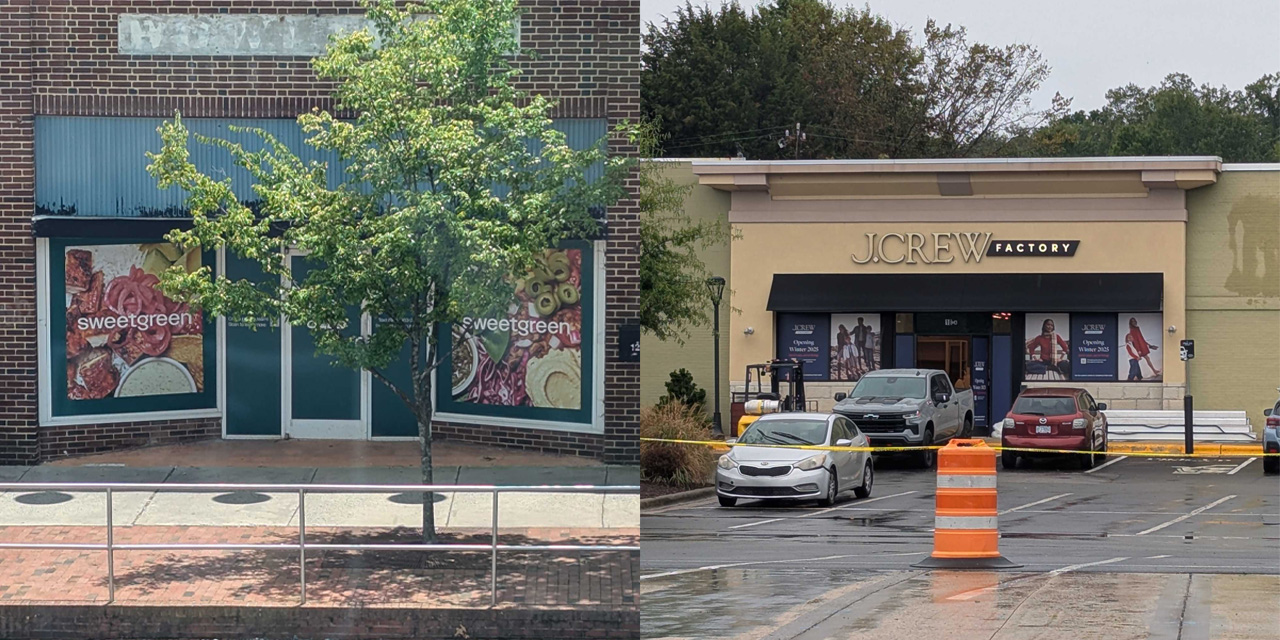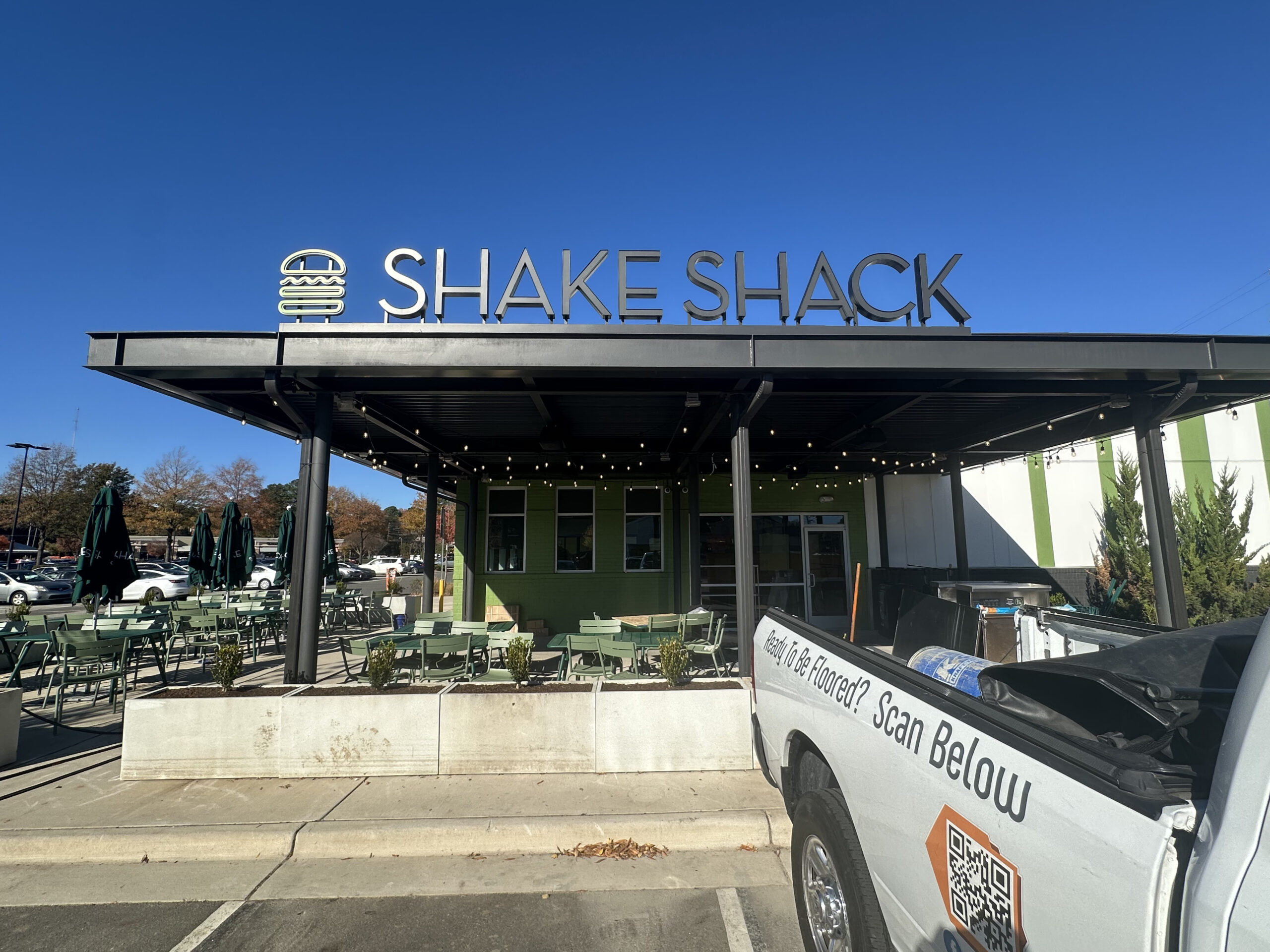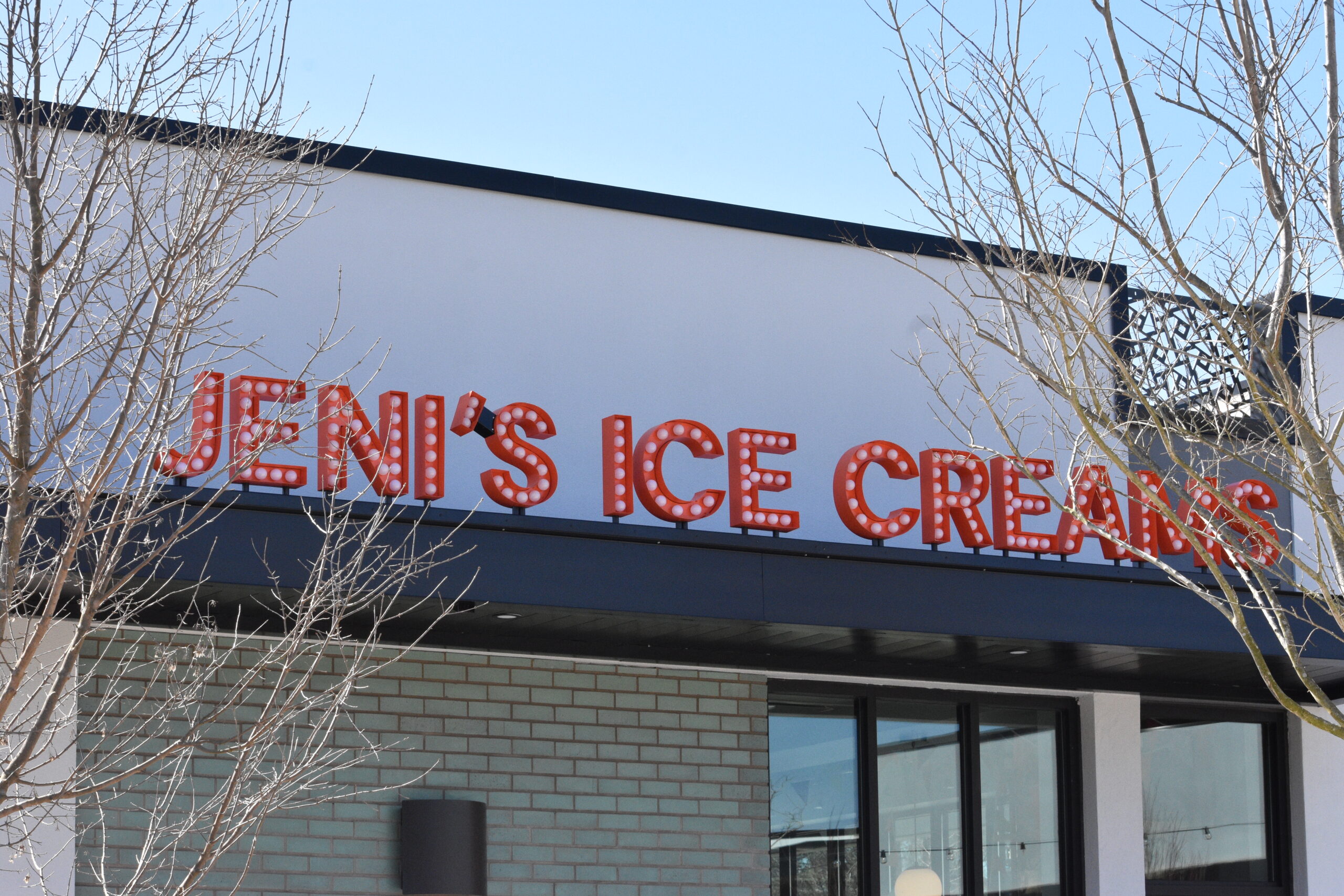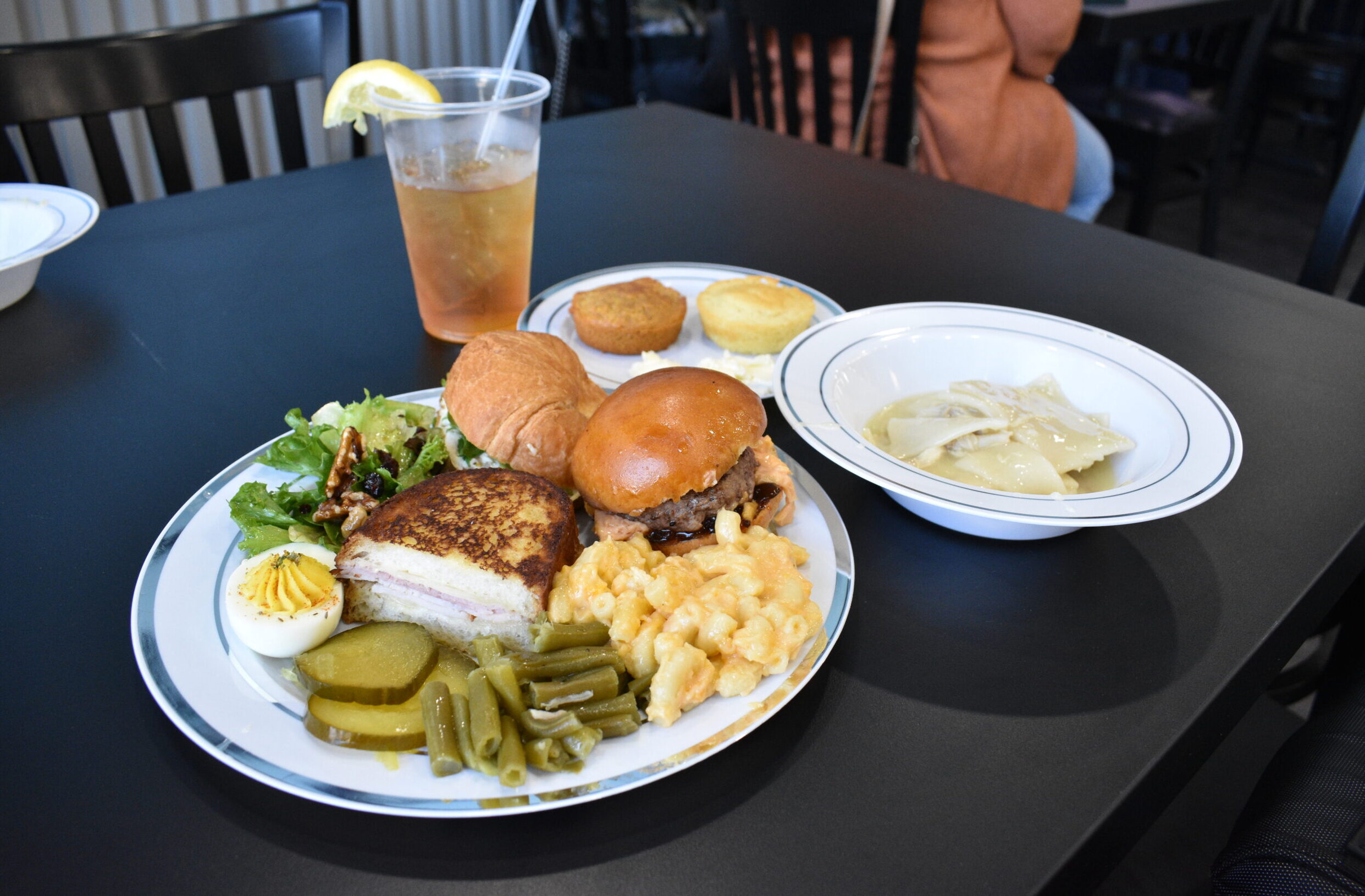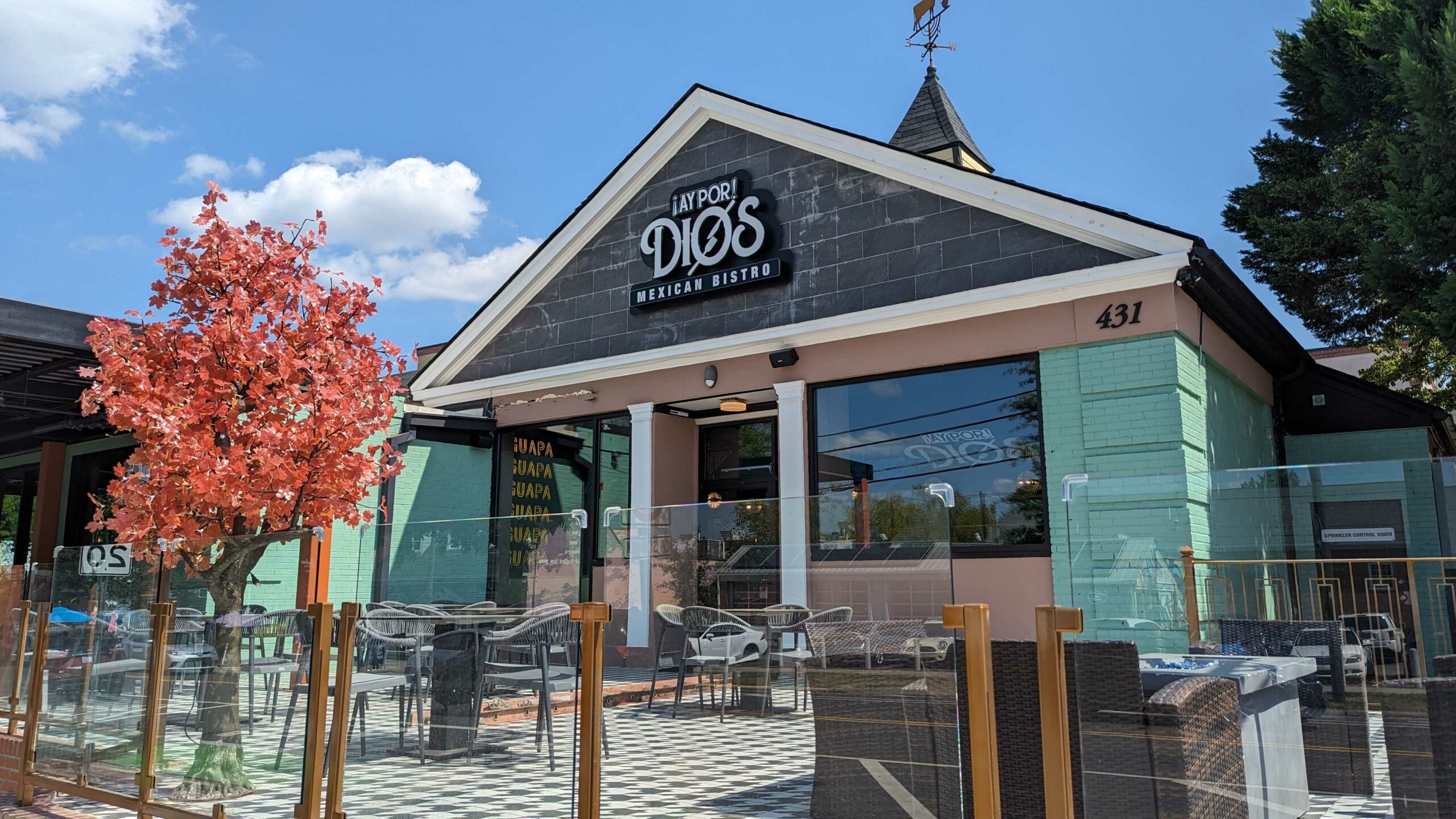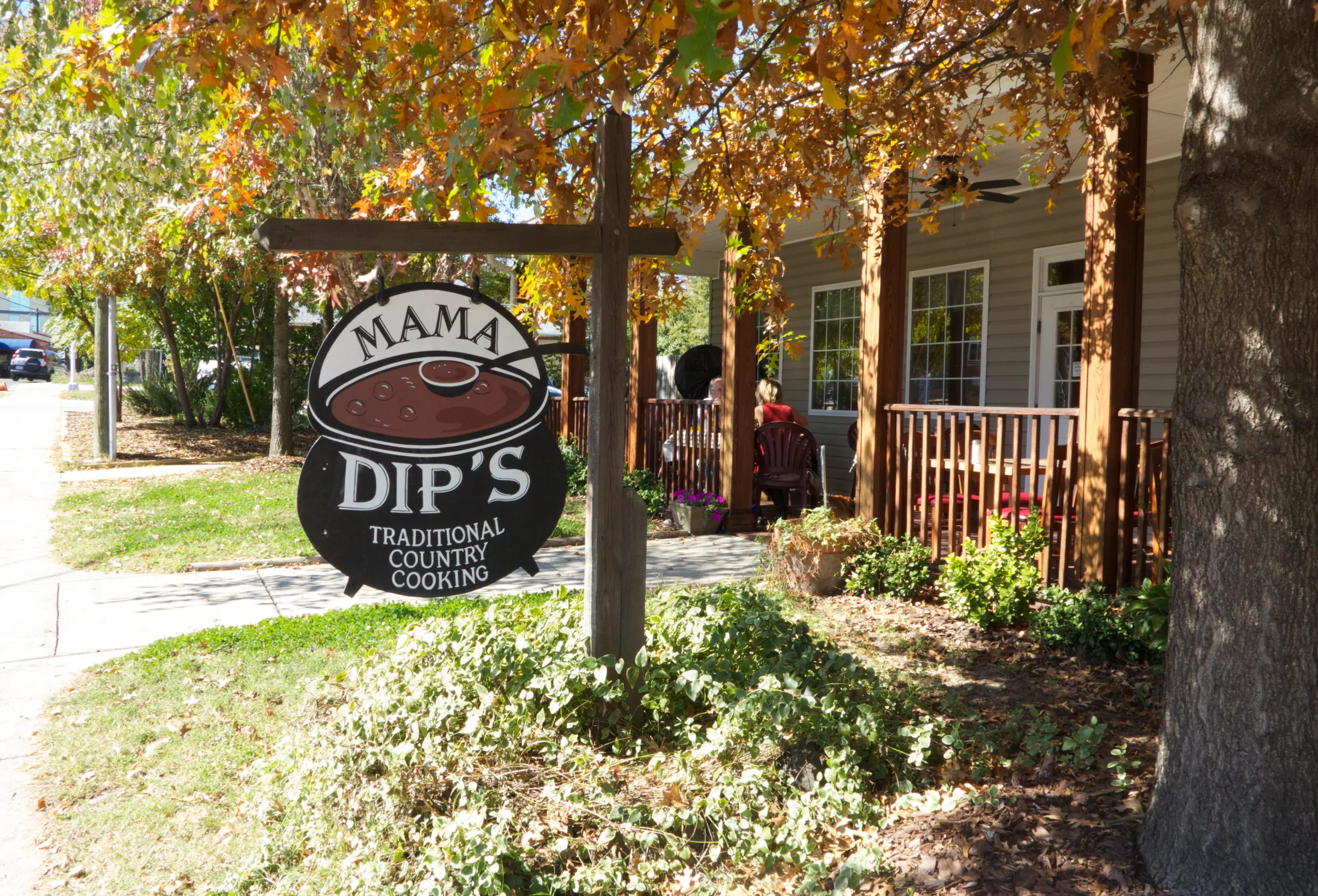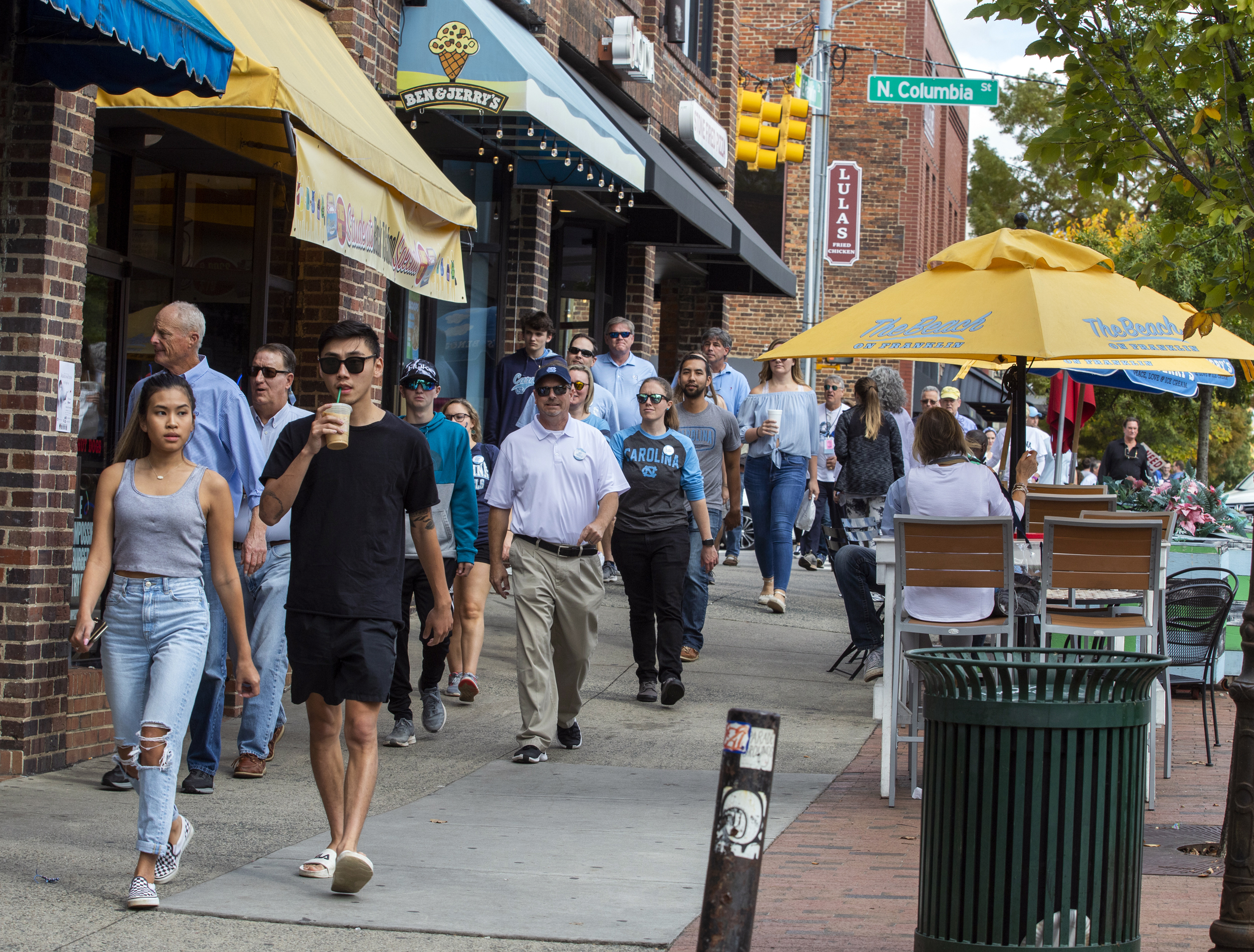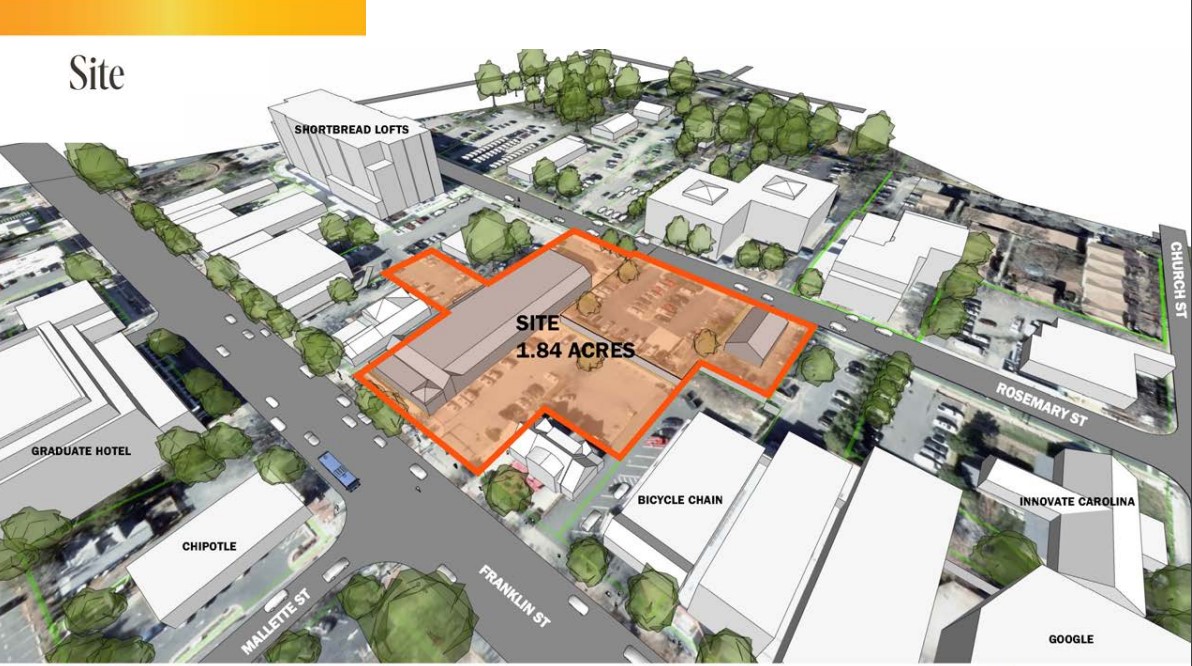The eastern part of downtown Chapel Hill has been the site of significant, planned redevelopment for the last few years. But a Boston-based development company is now looking at constructing a multi-story life sciences building on the western side to bring further changes.
Longfellow Real Estate Partners unveiled early plans for redevelopment at 306 West Franklin Street to the Chapel Hill Town Council on Friday, November 11. The group, which has footprints in both Durham and the Research Triangle Park, says they acquired the land earlier in 2022 and envision bringing more coveted lab space, a courtyard, and improved pedestrian access between West Franklin and West Rosemary streets.
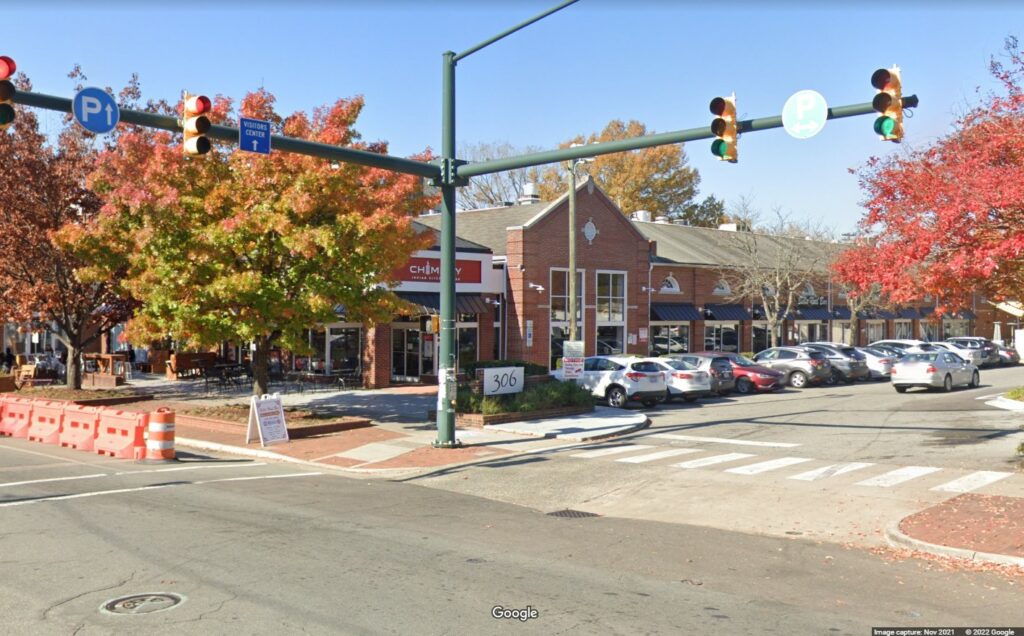
306 West Franklin Street sits at the intersection of Franklin and Mallette Street. (Photo via Google Maps.)
Longfellows Managing Director Greg Capps and other representatives spoke during the presentation to the Chapel Hill elected officials, expressing their excitement and belief that the space could bring different opportunities to the town’s business landscape. A release by Longfellow about the eventual project, which is in early concept planning, shared similar sentiments.
“Although it is extremely early in the process, our team is excited about the prospect of working with the Chapel Hill community to bring world class lab space and an unmatched level of care to Franklin Street,” said a company statement shared with Chapelboro. “For more than a decade, Longfellow Real Estate Partners has invested deeply in the Triangle Community throughout Durham, RTP, and Wake County – it is only fitting that one of our next investments will be in the heart of Chapel Hill, which has a long, proud history of academic excellence and innovation.”
Dwight Bassett, the town’s economic development director, introduced the group by saying Longfellow has discussed the project with himself and the Downtown Chapel Hill Partnership for months to best prepare for an initial round of applications. The goal is to continue creating space that blends the existing academia interest and talent with broader business opportunities, he said, while also helping the town keep business or research ideas that start at UNC more local— instead of forcing them take those practices elsewhere in the Triangle.
He added that more life science and lab space would help the move Chapel Hill toward a “12-month downtown” so other businesses are less impacted for when UNC is out of session.
“We know what our businesses went through during the pandemic,” said Bassett. “Anything we can to do as far as [improving] job creation adds to that [support], and we’re excited because we believe it’s a huge step forward in job creation, not only for downtown, but for the region.”
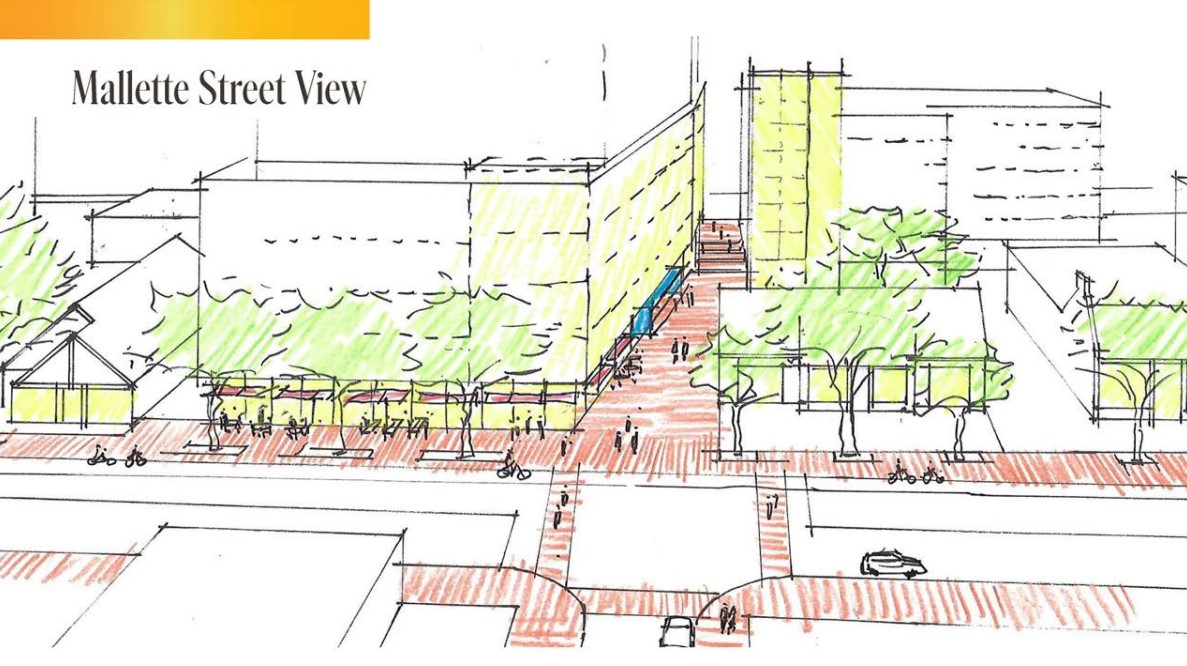
A sketch of early possible designs for a life science lab, office and retail building Longfellow is envisioning for 306 West Franklin Street in Chapel Hill. (Photo via Longfellow Real Estate Partners.)
Bassett said as part of the initial discussions between town staff and Longfellow, Chapel Hill representatives have shared a list of challenges and concerns to assist the developers in their initial concept plans. He said the goal is for the project to be through with town council consideration and ready for construction by October 2023.
The plans overlap coincide as work continues for bringing other lab space to East Rosemary Street in Chapel Hill. In late 2021, the town council approved the final step needed to complete a land swap with Grubb Properties to begin work on a 238,000 square-foot lab and office building at 150 East Rosemary Street. The existing parking deck at the address will be demolished, but not before construction of a new, expanded parking deck is complete at 125 East Rosemary Street.
Chapel Hill council members’ initial comments on the vision for 306 West Franklin Street were largely positive. Some focused on creating a design that improves “activation” for those on the street, like finding space for programming with community members beyond those coming to work or walking between the two popular streets.
Council member Michael Parker encouraged Longfellow to draw upon their designs, as well as other downtown successes, from Durham and Raleigh to “push the envelope.”
“Be crazy about this,” he said. “I think there’s a lot of things you can do, a lot of things in Chapel Hill that we haven’t had. And I think not only can this be a great building in and of itself, but it can be a great stake in the ground that lays out what else Chapel Hill can be going forward.”
Some representatives of the local businesses already housed in the space, however, said they felt more dispirited than encouraged by the vision for the property presented by Longfellow. The 306 West Franklin Street shopping center is home to several restaurants, small businesses and an incubator space.
Taylor Gilland owns one of such businesses, the açai bowl restaurant and café Purple Bowl, with his family members. He said his family initially hoped to buy the building when it was up for sale in an attempt to renovate the space with their own vision and “to protect [the space] against something like this from happening.” Ultimately, Longfellow’s bid for the property made the Gillands’ uncompetitive.
The younger Gilland said the new ownership approached Purple Bowl several months ago to alert them to potential, future development. He said after seeing the plans unveiled to the Chapel Hill Town Council, it’s hard not to imagine this being “the death sentence” for his family’s restaurant.
“Yes, there’s this seven-story building that might go up, and years from now we can call it an innovation center,” said Gilland. “But it’s going to be the end of our small business, and it’s just hard for us.”
While Longfellow said its early concept plans consider having ground-floor retail space where Purple Bowl currently is, Gilland says the closures required during the demolition and redevelopment of the site would likely be too lengthy. He also said with the business investing in expanding within the building earlier this year, moving to a new location in Chapel Hill may also not be financially feasible.
“It’d really be starting a business from scratch,” said Gilland, “especially in a transient town like Chapel Hill where students leave all the time. We’d lose that familiarity bias, that brand — it would all really fall away. I think the economic reality is if these plans get approved, it would be the end of Purple Bowl.”
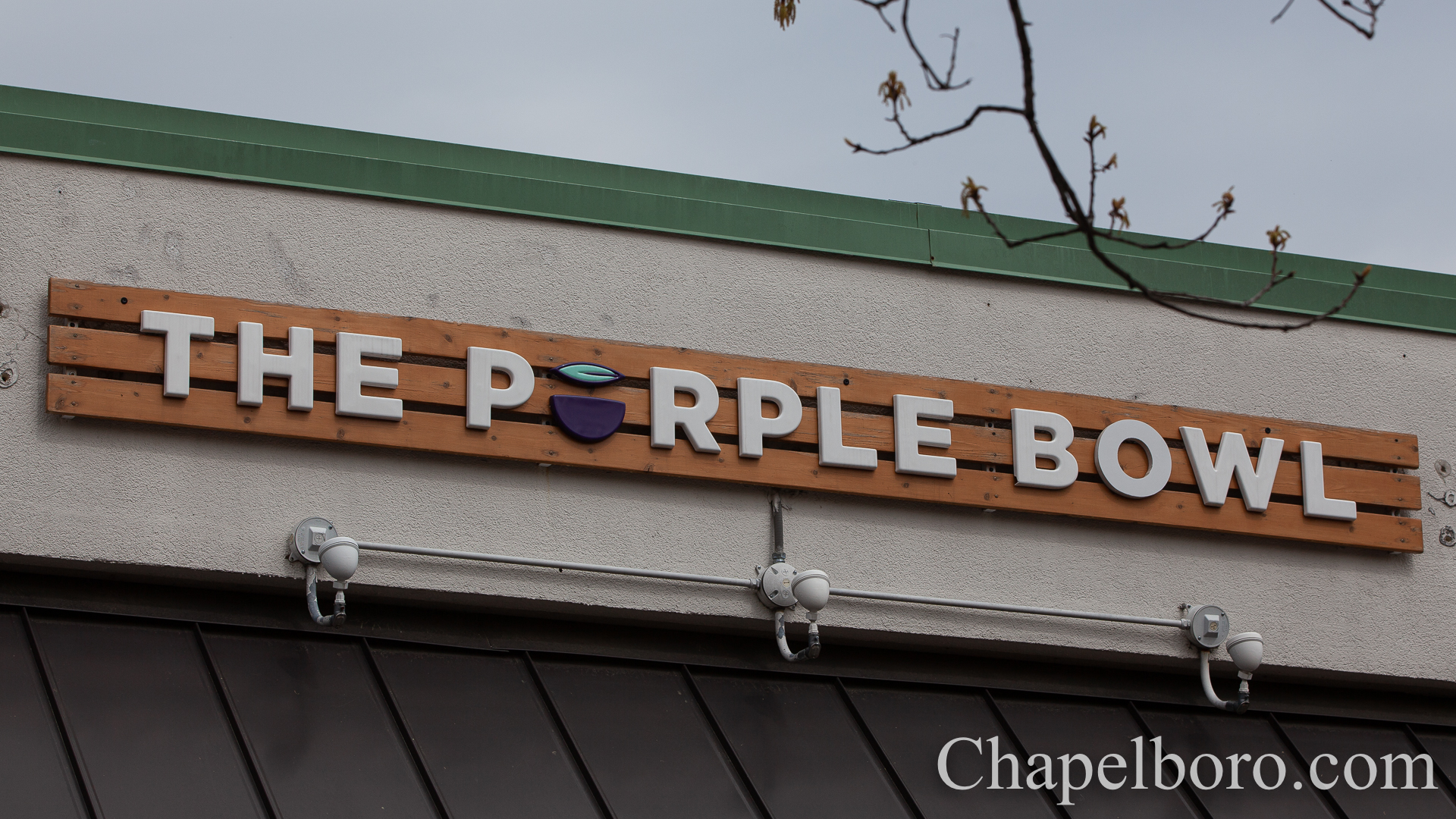
The Purple Bowl opened in downtown Chapel Hill in 2017 in the 306 West Franklin building. Its future in the space, however, is unclear.
Matt Gladdek, who is the executive director of the Downtown Chapel Hill Partnership, said his organization plans to follow up with the businesses in the building to discuss resources and “do our best to keep all of them downtown.” He added that Longfellow’s current vision fits with Chapel Hill’s long-term goals of bringing a broader range of people downtown, creating public space, and improving pedestrian connections between blocks of Rosemary and Franklin Streets.
The presentation slides Longfellow showed to the Chapel Hill Town Council on November 11 can be found on the town’s website.
Photo via Longfellow Real Estate Partners.
Chapelboro.com does not charge subscription fees, and you can directly support our efforts in local journalism here. Want more of what you see on Chapelboro? Let us bring free local news and community information to you by signing up for our biweekly newsletter.


